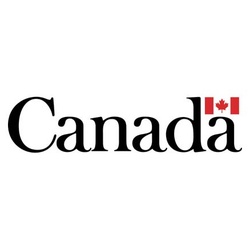
Open
Tourism Growth Program (TGP)
Last Update: October 27, 2025
Canada
Boost your company's growth and sustainability with targeted tourism investments
Grant and Funding
At a glance
Funding available
Financing goals
Develop a new product
Develop strategic partnerships
Increasing community impact
See more
Eligible Funding
- Maximum amount : 250,000 $
- Up to 15% of project cost
Timeline
- Unspecified
Eligible candidates
Eligible Industries
- Arts, entertainment and recreation
Location
- Canada
Legal structures
- Non-profit
- Public or Parapublic institution
- For-profit business
Annual revenue
- All revenue ranges
Organisation size
- All organization sizes
Audience
- All groups
Non-profit candidates
Sector of operation
- Culture and Arts
- Other Recreation and Social Clubs
- Economic, Social and Community Development
Target groups
- General public
- Indigenous peoples
- Rural / Remote communities
- Business owners / entrepreneurs
Revenue structures
- All structures
Scope
- Local
- Regional
Overview
The Tourism Growth Program (TGP) provides up to $108 million in federal funding over three years to support community-driven development of local tourism experiences and products across Canada. Eligible activities include projects that enhance existing tourism offerings and promote business and economic growth, with a special focus on Indigenous-led initiatives.
Activities funded
- Design and development of local tourism experiences and products at the community level.
- Initiatives that add value to existing tourism activities and services.
- Projects supporting Indigenous tourism development.
- Efforts to boost tourism opportunities in rural and remote communities.
- Initiatives that foster the growth of small and medium-sized tourism businesses and nonprofit organizations.
Eligibility
- The applicant must be an Indigenous or non-Indigenous community, a small or medium-sized enterprise (SME), or a non-profit organization.
- The project must focus on designing local tourism experiences or products that enhance tourism activities within the community.
- The proposed initiative should contribute to attracting more visitors to discover local offerings in Canada.
Who is eligible?
- Indigenous and non-Indigenous communities
- Small and medium-sized enterprises
- Non-profit organizations
Eligible geographic areas
- Atlantic Canada
- Quebec
- Northern Ontario
- Southern Ontario
- Prairie Provinces
- British Columbia
- Yukon
- Northwest Territories
- Nunavut
How to apply
1
Determine Eligibility
- Ensure your organization and project meet the eligibility criteria provided by the TGP in Quebec.
- Consider contacting CED for clarity if your project's qualification is uncertain.
2
Prepare Project Proposal
- Draft a comprehensive project proposal highlighting how your project aligns with the priorities and goals of the TGP.
- Include information on how the project will increase tourism capacity and attract visitors from outside Quebec.
- Develop a detailed plan with objectives, project activities, and expected outcomes.
- Prepare a budget and timeline for the project implementation.
3
Seek Support and Partnerships
- Engage with local stakeholders and partners to gain support for your project.
- Document financial or in-kind support from other stakeholders.
4
Contact Regional Development Agency
- If your project requires support of more than $60,000, contact CED directly for guidance on application submission.
- If your project budget is $60,000 or less, visit the Société des attractions touristiques du Québec website for application details.
5
Submit Application Package
- Gather all required documentation, including the project proposal and any letters of support.
- Submit the complete application package (and any other required documentation) to the appropriate contact point based on your project's scale.
6
Await and Respond to Feedback
Wait for confirmation of receipt and any feedback or requests for additional information from CED or the Société des attractions touristiques du Québec.
Additional information
- The program is implemented through Canada's seven regional development agencies, each coordinating according to its respective mandate.
- The Tourism Growth Program complements other federal, provincial, and territorial support measures for the tourism sector.
- A significant emphasis is placed on supporting Indigenous tourism, with a dedicated portion of funds allocated to Indigenous-led projects.
Apply to this program
Frequently Asked Questions about the Tourism Growth Program (TGP) Program
Here are answers to the most common questions about the Tourism Growth Program (TGP). This section explains what the program is, how much funding is available, eligibility requirements, application deadlines, and other important details to help you determine if this grant is right for your business.
What is the Tourism Growth Program (TGP)?
How much funding can be received?
What expenses are eligible under Tourism Growth Program (TGP)?
What is the deadline to apply?
Is the Tourism Growth Program (TGP) a grant, loan, or tax credit?
Who are the financial supporters of the Tourism Growth Program (TGP)?
Who is eligible for the Tourism Growth Program (TGP) program?
Who can I contact for more information about the Tourism Growth Program (TGP)?
Where is the Tourism Growth Program (TGP) available?
Apply to this program
More programs like this

Wage Subsidies And InternsClosed
Youth Employment and Skills Strategy - Canada Summer Jobs Wage Subsidy
Employment and Social Development Canada (ESDC)Supports employers in creating summer jobs for Canadian youth
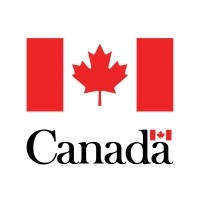
Grant and FundingOpen
Disaster Financial Assistance Arrangements (DFAA)
Public Safety Canada (PSC)Provides federal financial assistance for large-scale natural disaster recovery
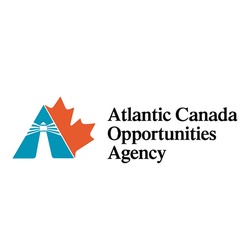
Grant and FundingClosed
Canadian Experiences Fund (CEF)
Atlantic Canada Opportunities Agency (ACOA)Canadian Experiences Fund supports innovative tourism projects expansion

Expert AdviceOpen
CGLCC — Tourism
Canadian LGBT+ Chamber of Commerce (CGLCC)Market your tourism business to LGBT+ travellers

Grant and FundingClosed
Regional development agencies: COVID-19 support
Government of CanadaSupport for businesses affected by COVID-19
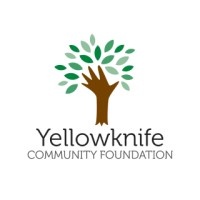
Grant and FundingOpen
Albert Hall Seniors Enhancement Fund
The Yellowknife Community FoundationSupporting seniors recreational activities and well-being
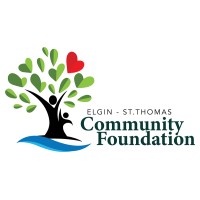
Grant and FundingOpen
2001 London Alliance Canada Summer Games Fund
Elgin-St. Thomas Community FoundationSupport amateur sport initiatives promoting physical health

Grant and FundingClosed
Arc'teryx Community Grant Program
Arc'teryxSupport for equitable access to the outdoors

Grant and FundingClosed
Snow PASS Grant Program
Ski-DooSupport for snowmobiling access, trails, and safety
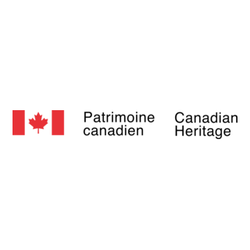
Grant and FundingOpen
International Single Sport Events - Hosting Program
Canadian HeritageSupports hosting international single sport events in Canada
Sign up to our platform to access the Tourism Growth Program (TGP) information sheet for free
Get access to 4,000+ programs, practical guides, personalized alerts, and an AI assistant to support your grant applications.